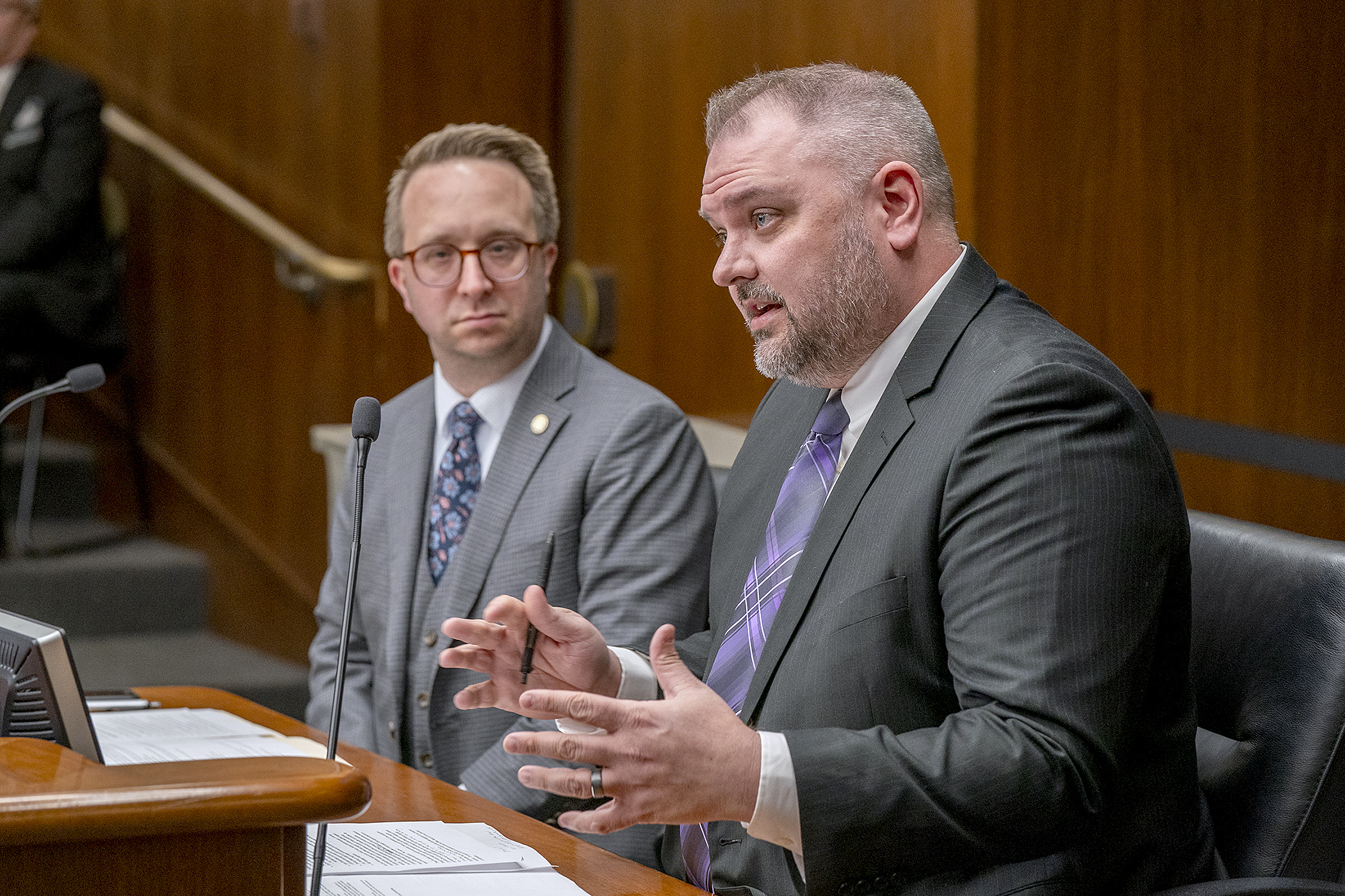Legislation seeks to broaden access to school-based child care
For families with young children, school-based programs can provide a convenient method of quality child care. Operated as part of the school district’s community education program, school-age care offers supervised activities before and after the school day for children in kindergarten through sixth grade.
While these “wraparound” programs are primarily funded through user fees, school districts are also able use local property tax levies to raise money to support students with disabilities or who have temporary family or other related problems.
Rep. Nathan Coulter (DFL-Bloomington) told the House Children and Families Finance and Policy Committee Thursday that the number of these programs and the types of services they offer has been expanding in recent years.
To try and keep pace with that increasing demand, he sponsors HF3721. It would expand the age range of reimbursable services to include preschool students and increase the amount of state aid to cover those costs rather than increase the burden on local taxpayers.
 Cory Franson, Elk River School District director of community engagement and community education, testifies before House lawmakers in support of HF3721. The bill is sponsored by Rep. Nathan Coulter. (Photo by Michele Jokinen)
Cory Franson, Elk River School District director of community engagement and community education, testifies before House lawmakers in support of HF3721. The bill is sponsored by Rep. Nathan Coulter. (Photo by Michele Jokinen)“What this bill specifically does is it expands the use of school-age care revenue and the school-age care levy to meet those needs,” Coulter told the committee, which laid the bill over for further consideration.
Cory Franson, Elk River School District’s director of community engagement and community education, supports the bill, saying the levy currently provides critical resources for supporting students with developmental or behavioral needs.
He said families express interest in using school-age care programs but barriers to access need to be removed.
“Currently, the school-age child care levy cannot be used for those early child care participants due to the age limitations set-up in the school-age child care statutory language,” Franson said. “This proposal is intended to bring those same support services into the existing preschool wraparound services that we’re providing.”
But opponents say the bill would hurt family child care programs by taking away business. In a series of submitted letters, they also said school-based care programs do not have to meet the same quality standards as family-care programs and would divert some of the funding they receive.
Rep. Natalie Zeleznikar (R-Fredenberg Township) said the bill could “decimate” family child care providers and other private child care providers as well.
“This is a definite erosion to family child care,” she said.
Coulter said the bill would simply provide more money to child care programs that already exist, not make changes that would harm other providers.
“This is ensuring that the resources are available to support families for whatever their individual situation may be.”
Related Articles
Search Session Daily
Advanced Search OptionsPriority Dailies
Speaker Emerita Melissa Hortman, husband killed in attack
By HPIS Staff House Speaker Emerita Melissa Hortman (DFL-Brooklyn Park) and her husband, Mark, were fatally shot in their home early Saturday morning.
Gov. Tim Walz announced the news dur...
House Speaker Emerita Melissa Hortman (DFL-Brooklyn Park) and her husband, Mark, were fatally shot in their home early Saturday morning.
Gov. Tim Walz announced the news dur...
Lawmakers deliver budget bills to governor's desk in one-day special session
By Mike Cook About that talk of needing all 21 hours left in a legislative day to complete a special session?
House members were more than up to the challenge Monday. Beginning at 10 a.m...
About that talk of needing all 21 hours left in a legislative day to complete a special session?
House members were more than up to the challenge Monday. Beginning at 10 a.m...